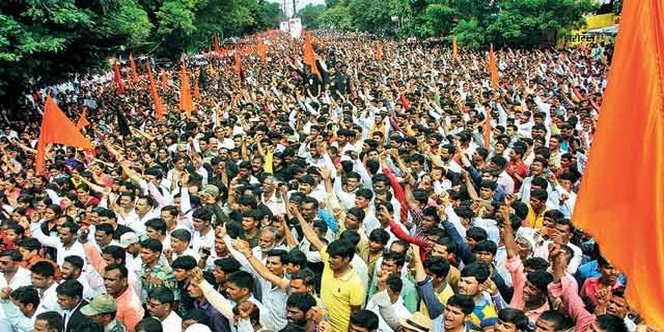Analysis
Maratha Review Dismissed: What Next?
In an order dated 28th June, a five-judge Bench dismissed the application for review on the Maratha judgment.

In an order dated 28 June, a five-judge Bench dismissed the application for review on the Maratha judgment. The Centre had filed the review petition, seeking the Court’s reconsideration of its interpretation of the 102nd Constitutional Amendment Act, 2018.
By a 3:2 majority, the Maratha judgment had held that the Amendment took away States’ powers to identify ‘socially and educationally backward classes’. This is the category under which many States and the Centre identify OBCs, MBCs and other ‘backward classes’ besides Scheduled Castes and Scheduled Tribes.
This interpretation was especially surprising since all States and the Union submitted that the Amendment did not affect States’ powers. This power of the States had been exercised often, even before independence, and was affirmed in the Indra Sawhney judgment. So, the Court’s interpretation was surprising to many, even in the legal fraternity.

The review petition was considered by a Bench of the same composition as the original judgment: Justices Ashok Bhushan, Abdul Nazeer, Hemant Gupta, Nageswara Rao and Ravindra Bhat. They considered the written submissions in chambers and refused to hear oral arguments on the matter. They found that the grounds cited in the review petition were already dealt with in the main judgment.
In this post, we explore the path forward. What are the options for the Centre and States, particularly Maharashtra, now?
Implementing the Ruling
If the Centre and States were to implement the ruling they would have to follow the process laid out in the newly added Articles 338B and Article 342A.
Article 342A(1) states that the ‘Central List’ must be notified by the President. This means the Central Government will have the power to make the List and advise the President to notify this.
However, the Article also requires that the List is made for each State after consultation with the Governor of the State. This means that the Government of each State must be consulted through the Governor.
J Bhushan’s opinion has also pointed out that Article 338B(9) requires the Centre and States to ‘consult’ the National Commission for Backward Classes on all policy matters. He has clarified that this includes whether a community should be identified as backward.
He has held that while a ‘consultation’ is not binding it must still be ‘meaningful, effective and conscious’. However, only J Nazeer had agreed with J Bhushan’s opinion in whole. It is unclear if the other judges agreed with this part of J Bhushan’s judgment, and to what extent it applies.
So, after the process of consultation, the particulars of which might be contested, the President will notify a single, comprehensive List. This List can then be varied only by Parliament through legislation. However, after identification, the decision of who will be given reservations or other benefits is still within the powers of both the Centre and the State, where applicable. Until this process is complete, however, the current regime will continue. The Maharashtra Government is likely to recommend the inclusion of Marathas when this process begins.
Wadekar and Kisana have recently pointed out that exercising this option might endanger the OBC status of many communities. Most States have more communities on their State List than the Central List. Questions may also be raised about the feasibility of conducting the consultation process during the COVID pandemic. And whether it would satisfy democratic requirements.
Amending the Constitution
The other option, which was argued for by BJP MP Sushil Kumar Modi, among others, is to amend the Constitution. The Central Government may introduce an Amendment Bill in Parliament to clarify that States’ powers to identify backward classes will remain unaffected.
Such an amendment would not be unprecedented. The 1st Amendment Act, 1951 was also enacted to clarify the freedom of speech and property rights after unfavourable rulings from the Courts. Parts of Indra Sawhney have also been reversed by the 77th, 81st and 103rd Amendments.
Will Grounds for Review/’Cure’ Arise?
Occasionally, grounds for a review or curative petition have arisen due to other factors. In 2018, the Supreme Court accepted a curative petition on the constitutionality of section 377 IPC, 1860. This was because a nine-judge bench in the right to privacy case had cast doubt on its earlier ruling which upheld section 377. Another bench heard arguments on the matter again and read down the section.
Similar changes in the law which could have an effect on the interpretation might cause the Court to consider a review. However, this is unlikely to happen in the near future and this is a path that is not within the control of either the Centre or State governments.
